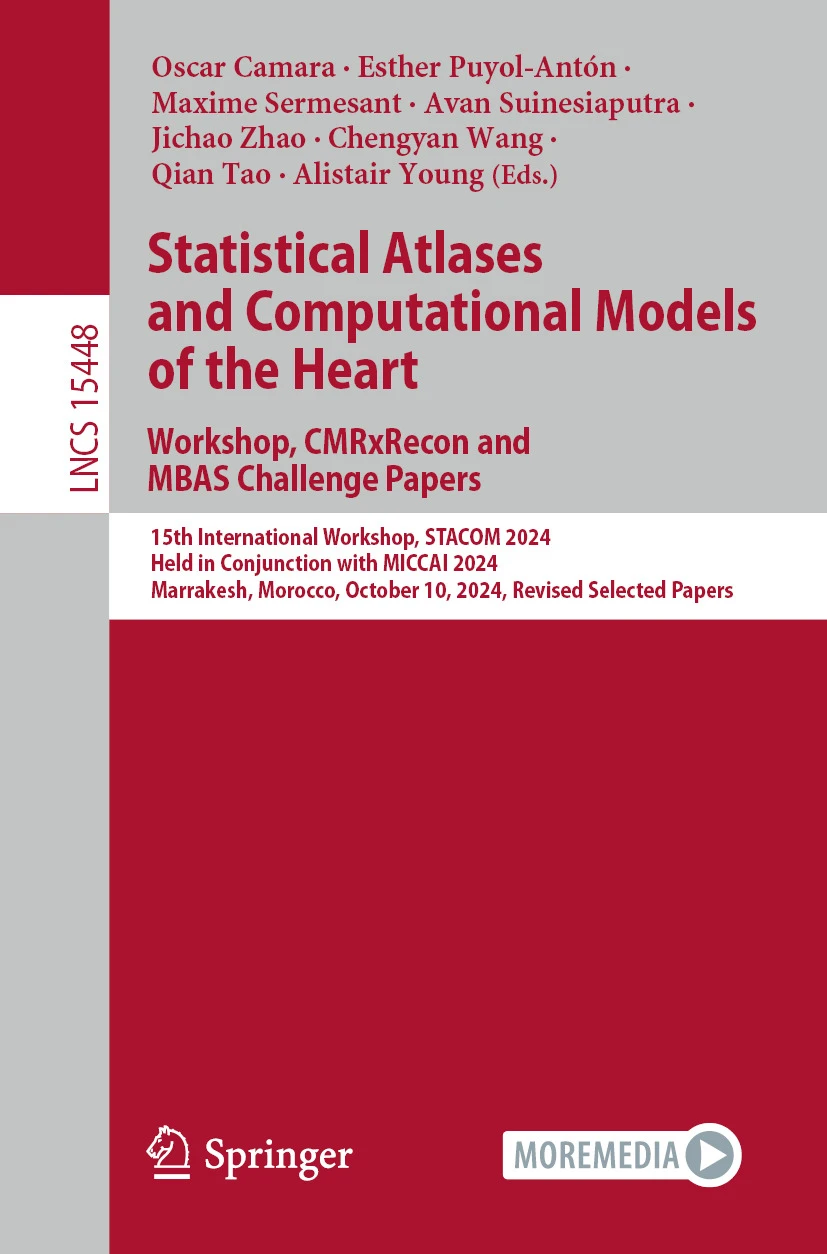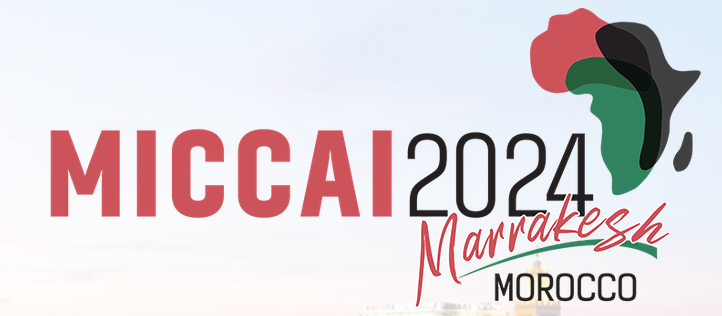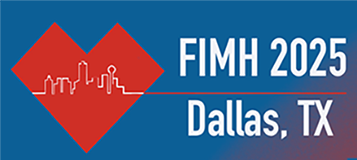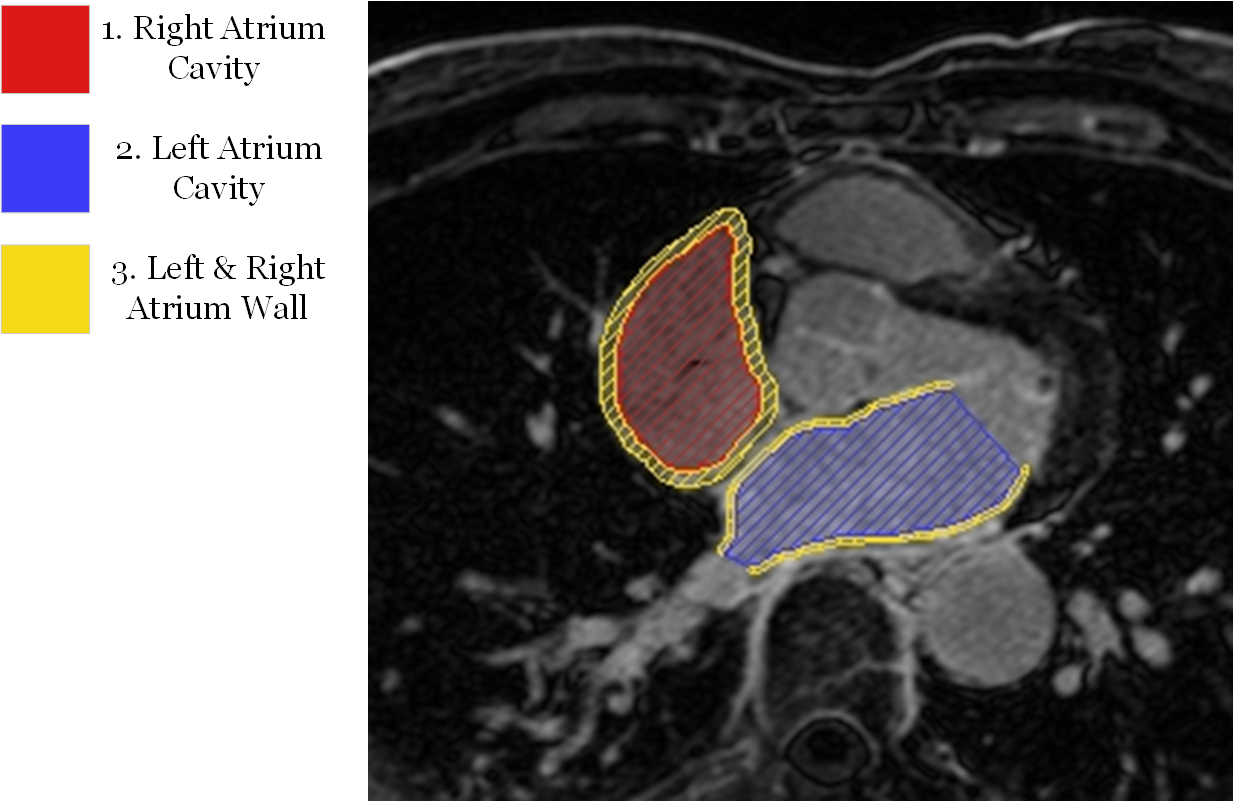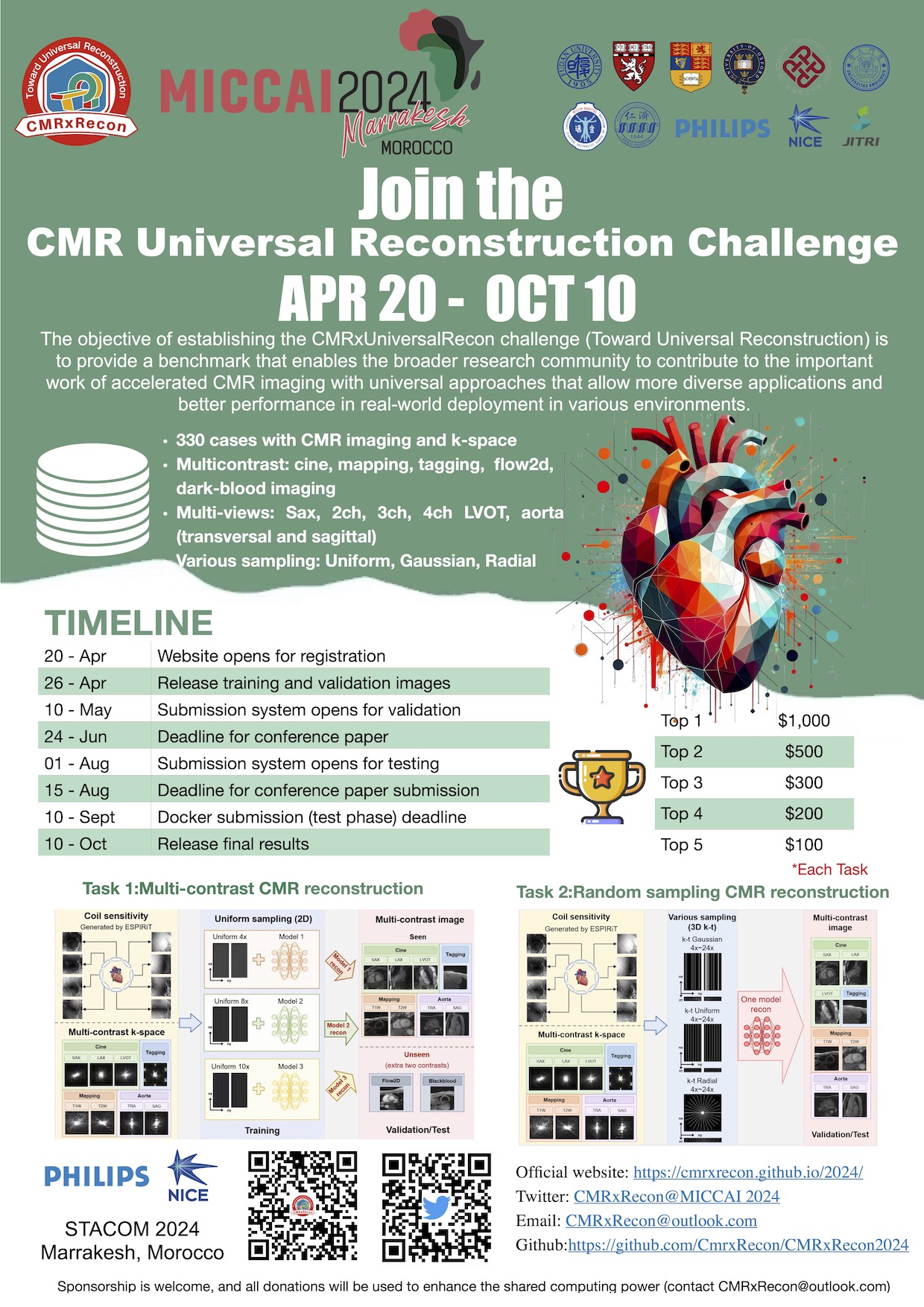The Statistical Atlases and Computational Modeling of the Heart (STACOM) workshop has been running annually at MICCAI since 2010. The 15th edition of STACOM workshop is going to be held in conjunction with the MICCAI 2024 in Marrakesh, Morocco. The STACOM workshop is aiming to create a collaborative forum for young/senior researchers (engineers, biophysicists, mathematicians) and clinicians, working on: statistical analysis of cardiac morphology and dynamics, computational modelling of the heart and fluid dynamics, data/models sharing, personalisation of cardiac electro-mechanical models, quantitative image analysis and translational methods into clinical practice.
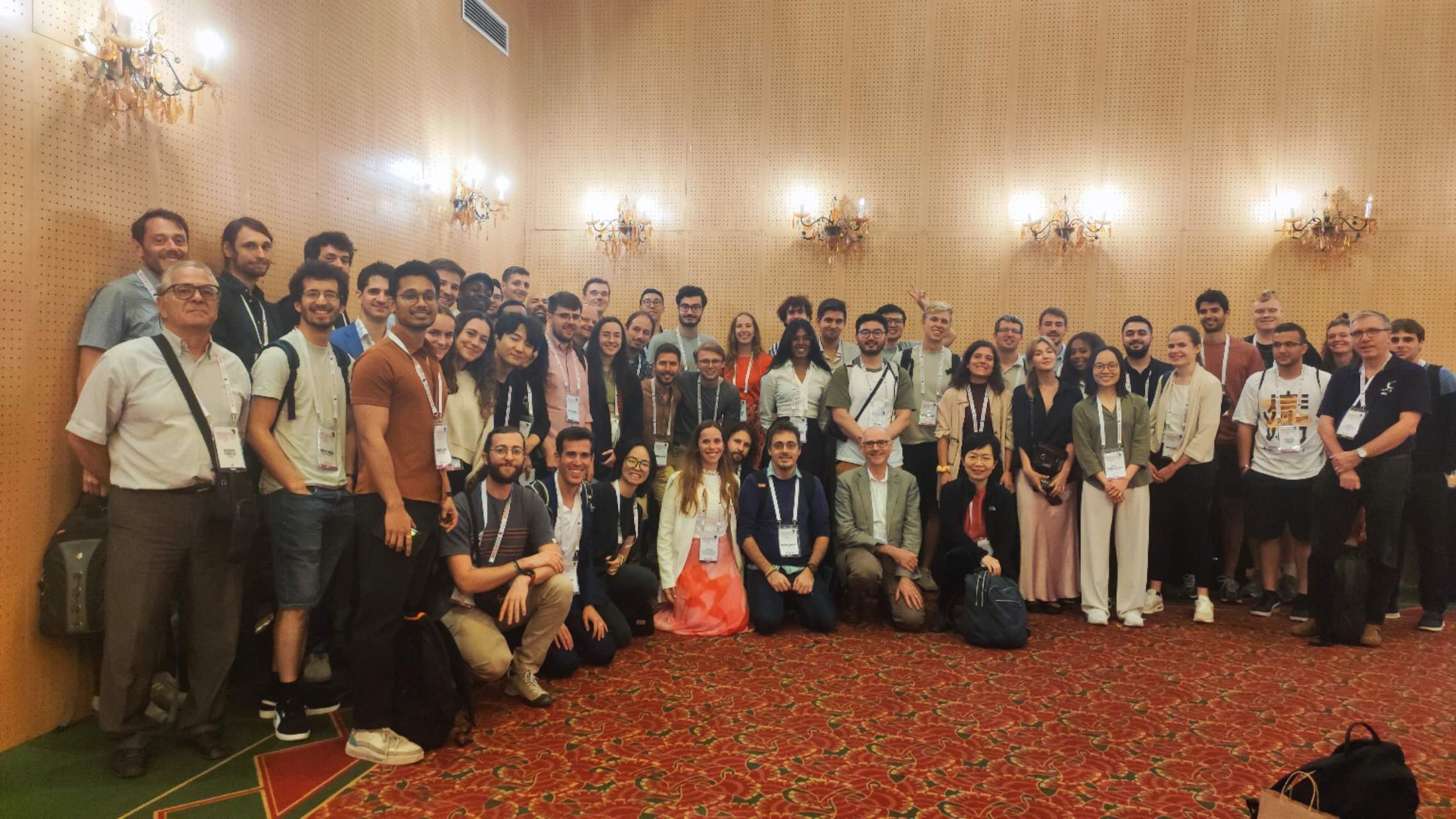
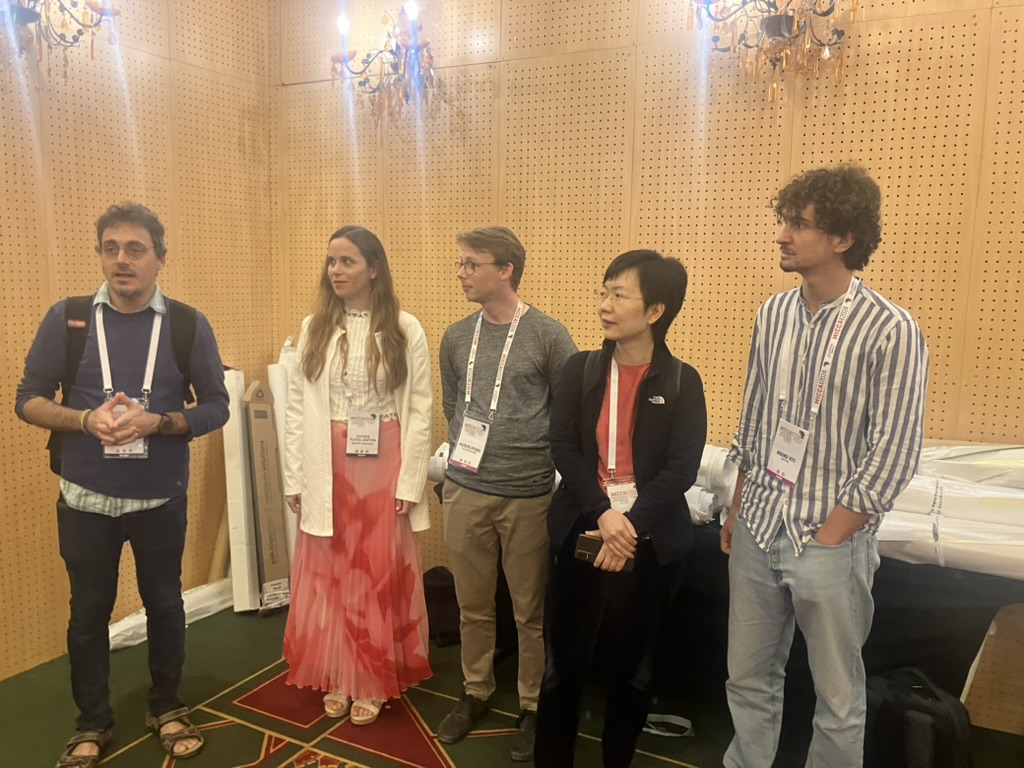
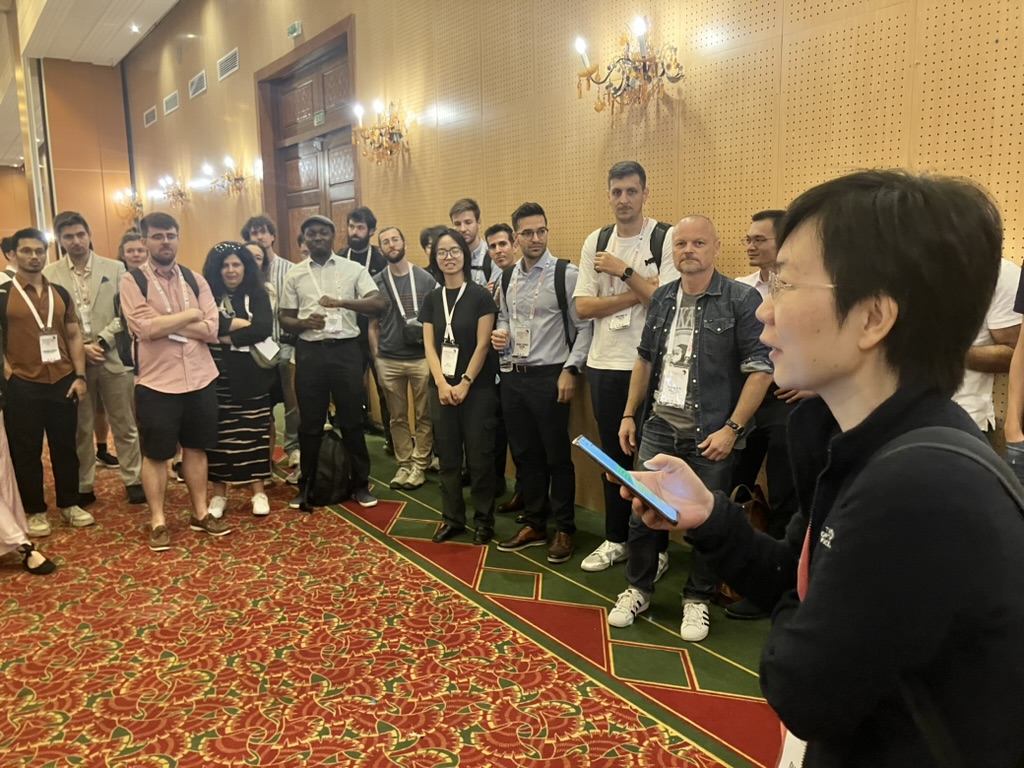
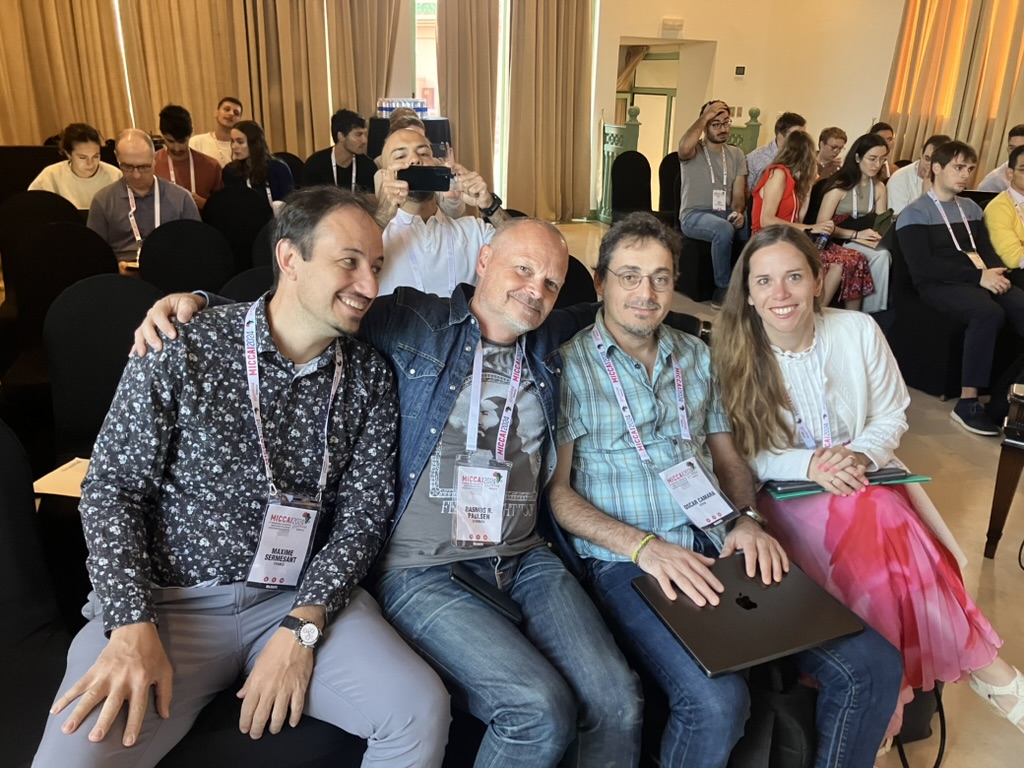
Awards
Congratulations to Bruno Viti for receiving Best Oral Presentation for his paper:
Bruno Viti1,5, Franz Thaler3,4, Kathrin Lisa Kapper1,5, Martin Urschler2,5, Martin Holler1,5, and Elias Karabelas1,5
2 Institute for Medical Informatics, Medical University of Graz, Austria
3 Institute of Computer Graphics and Vision, Graz University of Technology, Austria
4 Gottfried Schatz Research Center: Medical Physics and Biophysics, Medical University of Graz, Austria
5 BioTechMed-Graz, Graz, Austria
and to Patryk Rygiel for receiving Best Poster Presentation for his paper:
Patryk Rygiel1, Dieuwertje Alblas1, Christoph Brune1, Kak Khee Yeung2,3, and Jelmer M. Wolterink1
2 Department of Surgery, Vrije Universiteit Amsterdam, The Netherlands
3 Amsterdam Cardiovascular Sciences, Microcirculation, The Netherland
Schedule
The STACOM 2024 programme is split into morning session for the regular papers and afternoon session for the CMRxRecon and MBIAS challenges.
Morning session: regular papers
| 08:00-08:10 | Welcome |
| 08:10-09:00 | Keynote: Prof Rasmus R. Paulsen - Technical University of Denmark Title: AI Driven Shape Analysis for Cardiovascular Risk Predictions It is well established that the shape of the different heart structures is a predictor for cardiovascular risks like stroke and myocardial infarct. Traditionally, statistical methods like principal component analysis for point distribution models has been the main tool for shape analysis. Modern AI driven approaches like neural implicit functions have shown very convincing results. In this talk, I will give an overview of AI driven approaches for cardiac shape analysis for both static and temporal scans. Short bio: 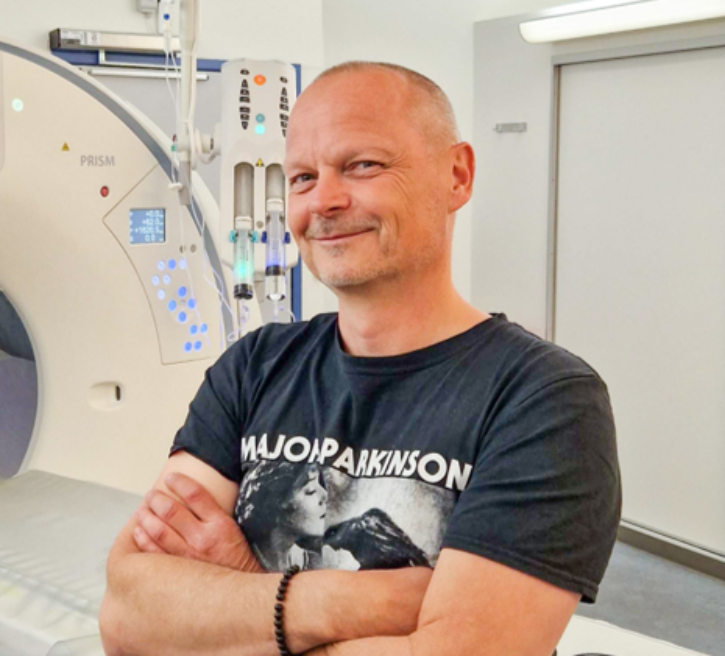 Rasmus R. Paulsen is a professor at the section for visual computing, DTU Compute at the Technical University of Denmark. Rasmus also has an office at the heart center at the Copenhagen University Hospital (Rigshospitalet). His current research focus is on cardiovascular risk prediction from large 3D image databases using AI driven methods with a focus on shape representations, generative shape and appearance models, latent space manipulations and reinforcement learning. Rasmus R. Paulsen is a professor at the section for visual computing, DTU Compute at the Technical University of Denmark. Rasmus also has an office at the heart center at the Copenhagen University Hospital (Rigshospitalet). His current research focus is on cardiovascular risk prediction from large 3D image databases using AI driven methods with a focus on shape representations, generative shape and appearance models, latent space manipulations and reinforcement learning. |
| 09:00-10:00 | Oral Session 1 |
| 09:00-09:15 | Gaussian Process Emulators for Few-Shot Segmentation in Cardiac MRI Bruno Viti, Franz Thaler, Kathrin Lisa Kapper, Martin Urschler, Martin Holler, Elias Karabelas |
| 09:15-09:30 | Comparing Left Atrial Spontaneous Echo Contrast Intensity with Gaussian Process Emulator Predictions Paolo Melidoro, Malak Sabry, Abdel Rahman Amr Sultan, Ahmed Qureshi, Gregory Y.H Lip, Natalie Montarello, Nishant Lahoti, Ronak Rajani, Magdalena Klis, Steven E. Williams, Oleg Aslanidi, Adelaide De Vecchi |
| 09:30-09:45 | EAT-Mamba: Epicardial Adipose Tissue Segmentation from Multi-modal Dixon MRI Fan Feng, Abdallah Hasaballa, Fangqiang Xu, Jiayuan Yang, Yun Gu, Grace Wen, Carl-Johan Carlhäll, Jichao Zhao |
| 09:45-10:00 | Neural Fields for Continuous Periodic Motion Estimation in 4D Cardiovascular Imaging Simone Garzia, Patryk Rygiel, Sven Dummer, Filippo Cademartiri, Simona Celi, Jelmer M. Wolterink |
| 10:00-10:30 | Coffee break |
| 10:30-11:00 | Oral Session 2 |
| 10:30-10:45 | Implicit Neural Representations for Registration of Left Ventricle Myocardium During a Cardiac Cycle Mathias Lowes, Jonas J Pedersen, Bjørn SHansen, Klaus F Kofoed, Maxime Sermesant, Rasmus R Paulsen |
| 10:45-11:00 | Can Interpretable Learning of Risk Explain Ventricular Arrhythmia Mechanism? Buntheng LY, Sonny Finsterbach, Marta Nuñez-Garcia, Hubert Cochet, Maxime Sermesant |
| 11:00-11:30 | Poster teaser |
| 11:30-12:25 | Poster session (see list of accepted papers) |
| 12:25-12:30 | Prizes and closing remarks + intro MBAS & CMRxRecon challenges |
Afternoon session: challenges
Multiclass Bi-Atrial Segmentation Challenge
Building from the 2018 left atrium challenge, this Multi-class Bi-Atrial Segmentation (MBAS) challenge broadens to include both left and right atriums as well as their walls, focusing on multi-class machine learning from LGE-MRIs to enhance ablation for atrial fibrillation patients. The challenge objective is to benchmark methods for segmentation and biomarker identification, such as atrium volume and fibrosis, using 200 multi-center 3D LGE-MRIs with each scan meticulously labelled by three experts.
For more information: click here
Schedule:
| 13:30-13:45 | Effective approach based on student-teacher self-supervised deep learning for Multi-class Bi-Atrial Segmentation Challenge Moona Mazher, Abdul Qayyum, Steven A. Niederer |
| 13:45-14:00 | Bidirectional Data Augmentation and Feature Swap for Multi-Class Bi-Atrial Segmentation Wenzong Li, Hui Liu, Sifan Miao, Lin Zhang |
| 14:00-14:15 | Exploring CNN and Transformer Architectures for Multi-class Bi-Atrial Segmentation from Late Gadolinium-Enhanced MRI Yichi Zhang, Yuan Cheng, and Yuan Qi |
| 14:15-14:30 | CavityBASNet: Cavity-focused Biatrial Automatic Segmentation on LGE-MRI with augmented input channel and left-right myocardium splitting Susana Merino-Caviedes, Emmanuel Chibuikem Nnadozie, Elisa Moya-Sáez, Marcos Martín-Fernández, Carlos Alberola-López |
| 14:30-14:45 | A self-distillation bi-atrial segmentation network for Cardiac MRI Waqas Anwaar, The van Manh, JiongTong Hu, Zhurong Chen, Wufeng Xue, Dong Ni |
| 14:45-15:00 | Residual encoder nnUnet for solving MBAS challenge Alexander Zolotarev, Caroline Roney |
| 15:00-15:15 | Multi-Loss 3D Segmentation for Enhanced Bi-Atrial Segmentation Enrique Almar-Munoz, Markus Tiefenthaler, Nohemi Sofia Leon-Contreras, and Adria Aguilar-Minguez |
| 15:15-15:30 | Results of the Multi-class Bi-atrial Segmentation Challenge Jichao Zhao, Johnny Xu and Fan Feng |
Cardiac MRI Reconstruction Challenge
The objective of establishing the Cardiac MRI Reconstruction challenge is to provide a benchmark that enables the broader research community to contribute to the important work of accelerated CMR imaging with universal approaches that allow more diverse applications and better performance in real-world deployment in various environments. There are two tasks in this challenge: multi-contrast CMR reconstruction and random sampling CMR reconstruction.
For more information: click here
Schedule:
| 16:00-16:05 | Welcome | |
| 16:05-16:25 | Keynote Prof Daniel Rueckert - Technical University Munich Title: AI for image reconstruction, super-resolution and analysis Artificial Intelligence (AI) is changing many fields across science and our society. This talk will discuss how AI is changing medicine and healthcare, particularly in radiology. I will focus on how AI can support the acquisition of medical images and image analysis and interpretation. This can enable the early detection of diseases and support the improved personalised diagnosis. I will show several examples of this in the talk, including cardiovascular MR imaging. Short bio:  Daniel Rueckert is an Alexander von Humboldt Professor for AI in Medicine and Healthcare at the Klinikum rechts der Isar, Technical University of Munich, where he is also Director of the Institute for AI and Informatics in Medicine. He is also a Professor of Visual Information Processing in the Department of Computing at Imperial College London. His research interests include all aspects of AI for applications in medicine and healthcare. Daniel Rueckert is an Alexander von Humboldt Professor for AI in Medicine and Healthcare at the Klinikum rechts der Isar, Technical University of Munich, where he is also Director of the Institute for AI and Informatics in Medicine. He is also a Professor of Visual Information Processing in the Department of Computing at Imperial College London. His research interests include all aspects of AI for applications in medicine and healthcare. |
|
| 16:25-16:40 | Summary of the CMRxRecon2024 challenge: Dr. Chengyan Wang - Fudan University | |
| 16:40-17:10 | Oral session 1 Moderator: Dr. Chen Qin - Imperial College London | |
| 16:40-16:50 | Adaptive Unrolling Applied to the CMRxRecon2024 Challenge Bingyu Xin (Rutgers University) |
|
| 16:50-17:00 | Towards Universal Dynamic MRI Reconstruction George Yiasemis (University of Amsterdam) |
|
| 17:00-17:10 | An All-in-one Approach for Accelerated Cardiac MRI Reconstruction Kian Anvari Hamedani (Shahid Beheshti University) |
|
| 17:10-17:20 | Single Reconstruction Network for Varieties of Cardiac MRI Chi Zhang (Stanford University) |
|
| 17:20-17:50 | Oral session 2 Moderator: Dr. Shuo Wang - Fudan University | |
| 17:20-17:30 | HyperCMR: Enhanced Multi-Contrast CMR Reconstruction with Eagle Loss Ilkay Oksuz (Istanbul Technical University) |
|
| 17:30-17:40 | Cardiac MR deep learning reconstruction with self-adaptive coil sensitivity map estimation Zhenxi Zhang |
|
| 17:40-17:50 | An End-to-end Deep Unrolling Network for Multi-Contrast Cardiac MRI Reconstruction Zhihao Xue (Shanghai Jiao Tong University) |
|
| 17:50-18:00 | UPCMR: A Universal Prompt-guided Model for Random Sampling Cardiac MRI Reconstruction Donghang Lyu (Leiden Medical University Center) |
|
| 18:00-18:10 | Prizes and closing remarks |

